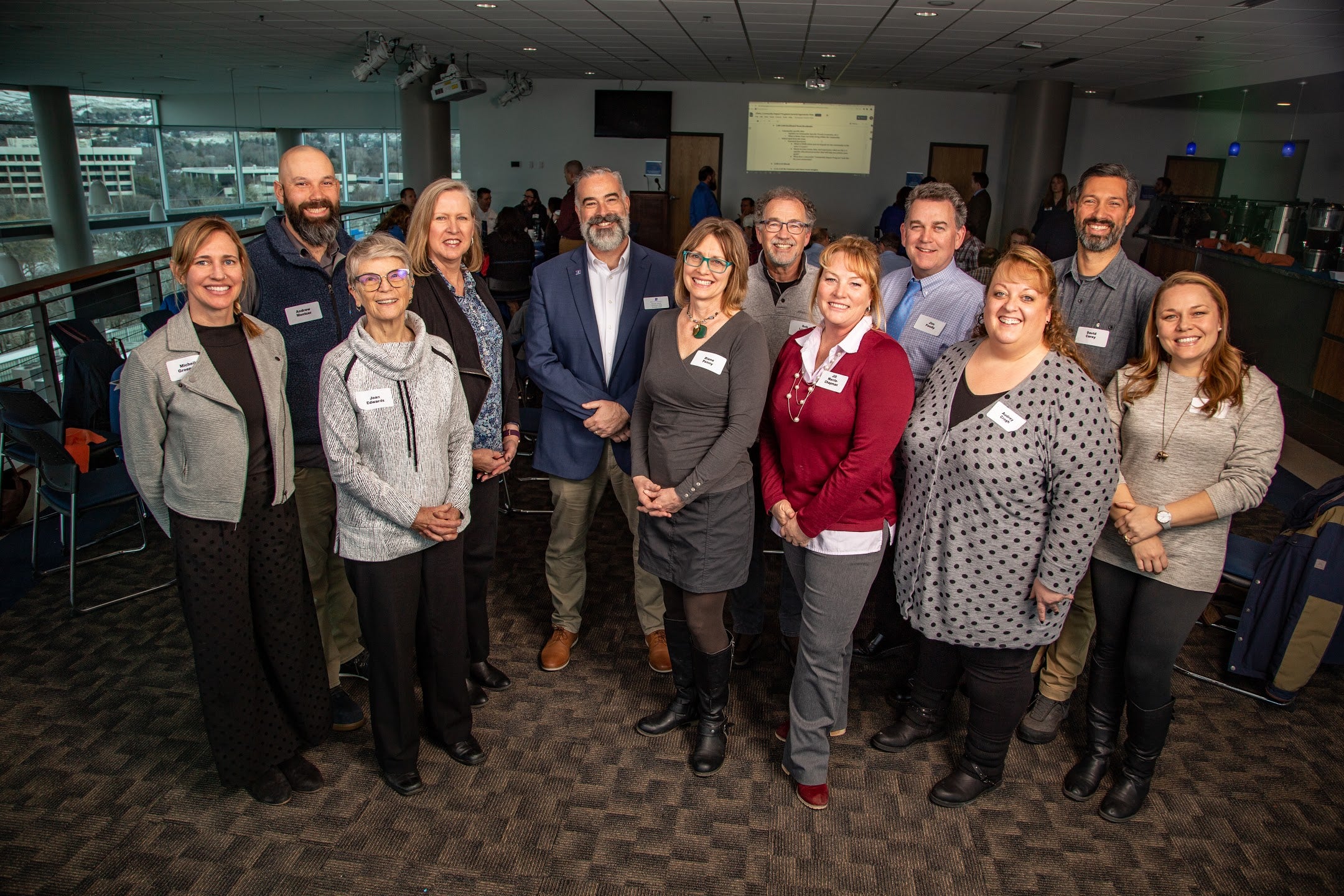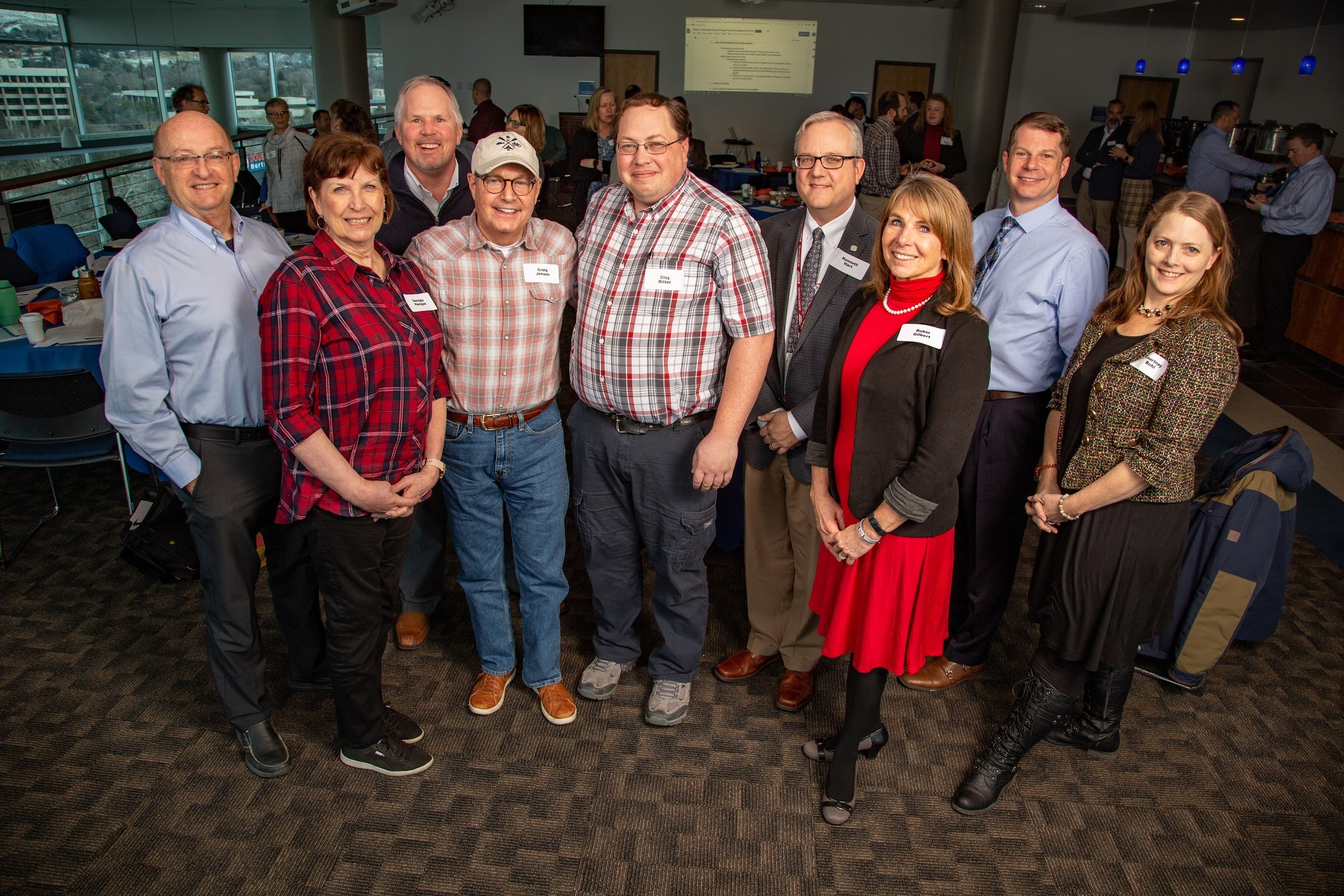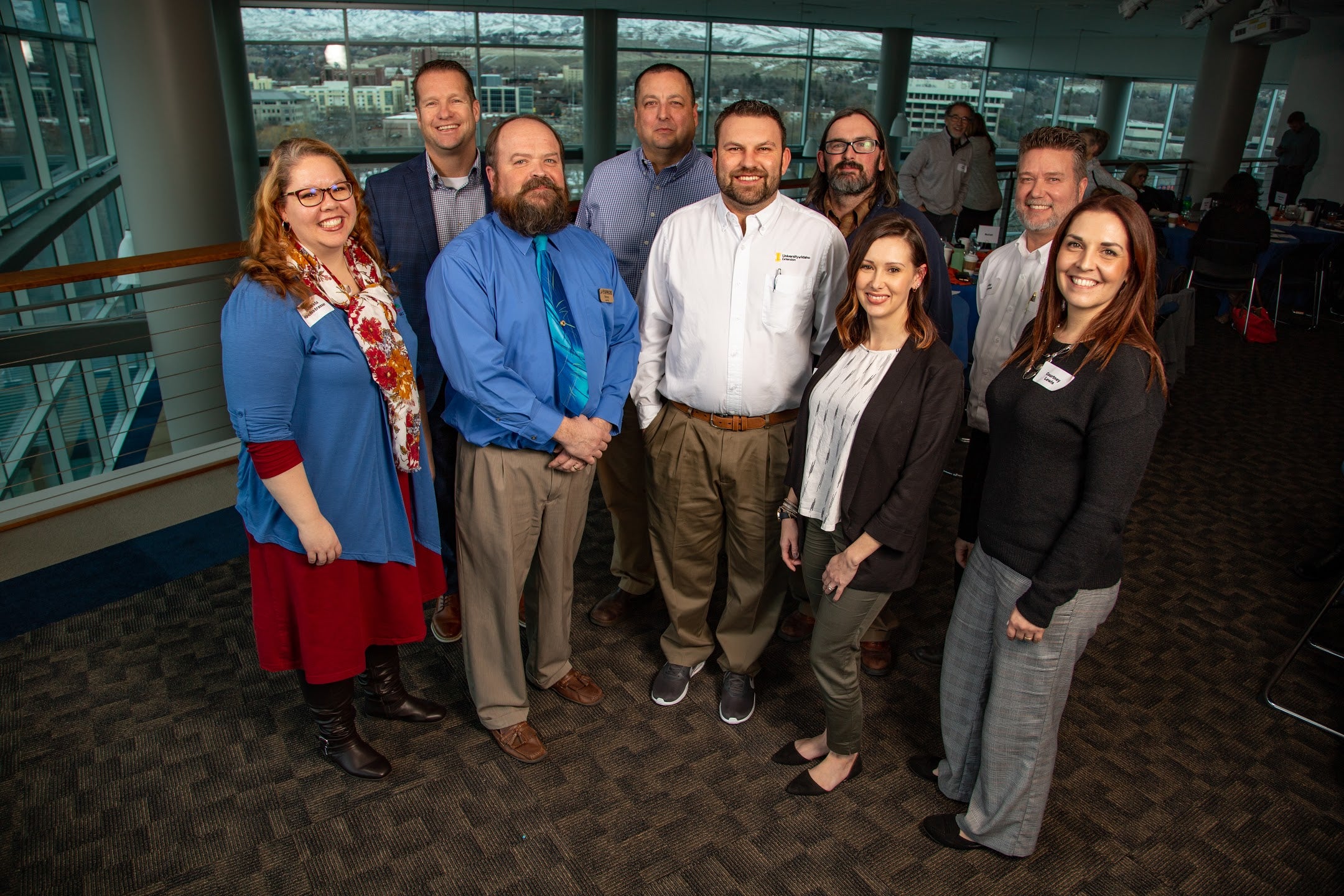Last fall, Boise State University President Marlene Tromp called on the Boise State campus to identify and deliver educational programs to rural communities in the university’s service area.
On Jan. 16, Boise State’s Division of Extended Studies hosted a rural initiative summit, an inaugural event bringing core community advisory teams from McCall, Mountain Home and Payette to campus to learn more about the vision and goals of the president’s rural initiative. Representatives from the Idaho Department of Labor, Idaho Department of Commerce, Boise State University and the Idaho State Board of Education also attended to share their perspectives and fuel the conversation.
In her summit welcome address, Dr. Tromp shared the heart of Boise State’s efforts to extend higher education to rural Idaho communities, which is rooted in her own experience growing up in a small town in Wyoming.
“What happens when we leave extraordinary people untouched by education?” she asked. “We leave them behind and we don’t help their communities thrive.”
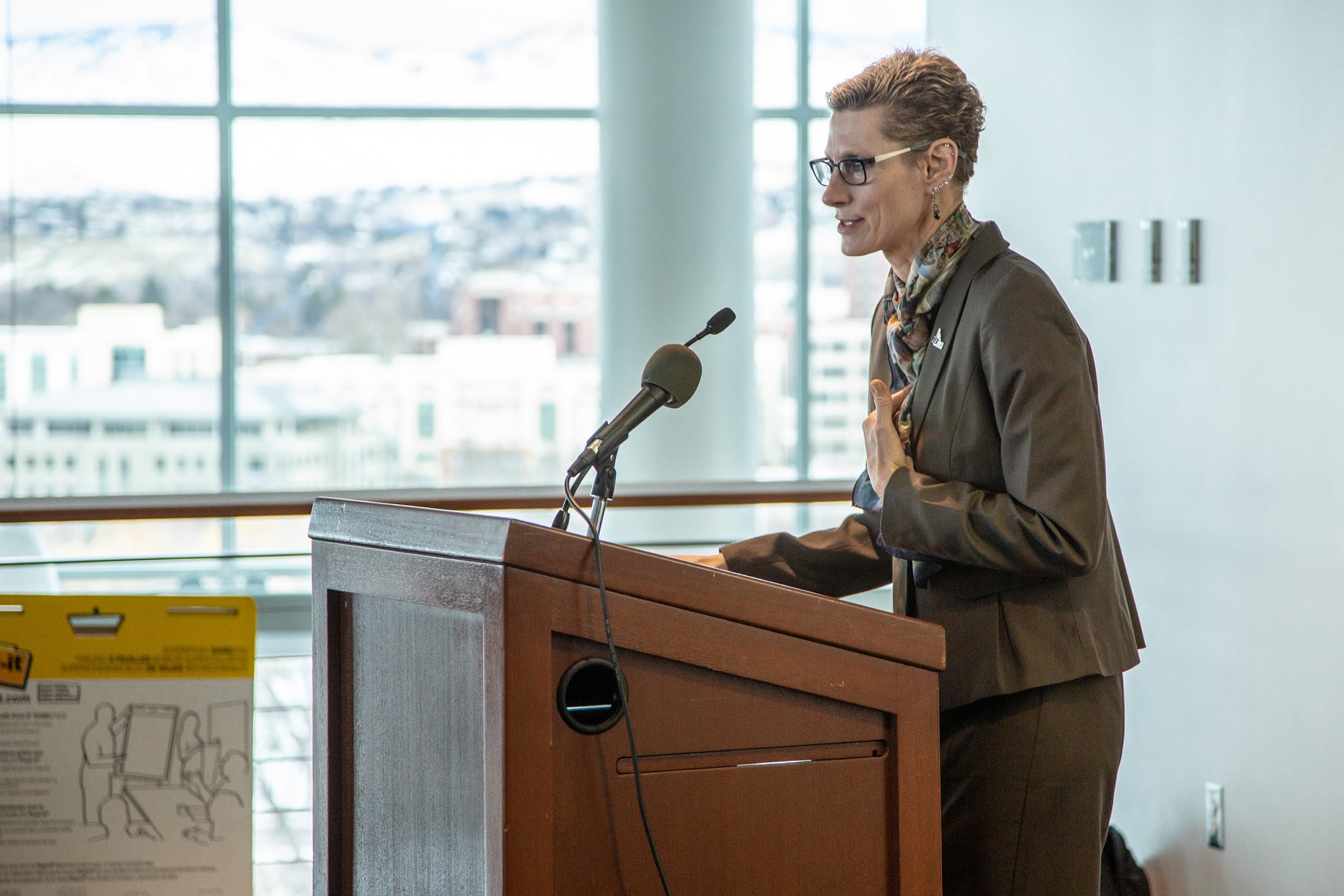
Dr. Tromp then challenged the community leaders in the room: “Tell us what you need the most and we’ll build it around you. Together with you, I want to change people’s lives and build stronger communities.”
According to a 2018 report from the Idaho Department of Labor, “88 percent of Idaho’s land area is in counties classified as rural, which is home to 28 percent of the state’s total population.” Furthermore, a newly released report from the Idaho State Board of Education revealed a six percentage point gap in postsecondary enrollment rates between rural (44 percent) and urban students (50 percent).
Mark Wheeler, dean of Extended Studies, also shared how technological shifts have created immense opportunities to bring Boise State and the higher education experience to more Idahoans.
“I had to go to college because college couldn’t come to me,” Wheeler said.“Boise State’s online classes are anytime, anywhere. As long as you have internet access, you can log in and take a Boise State class and pursue a degree.”
With the educational context provided by Dr. Tromp and Wheeler, along with economic forecasts provided by Craig Shaul from the Idaho Department of Labor, the community advisory teams then were tasked with starting the process of developing “signature programs that leverage the unique elements of your community,” explained Peter Risse, associate dean of Extended Studies.
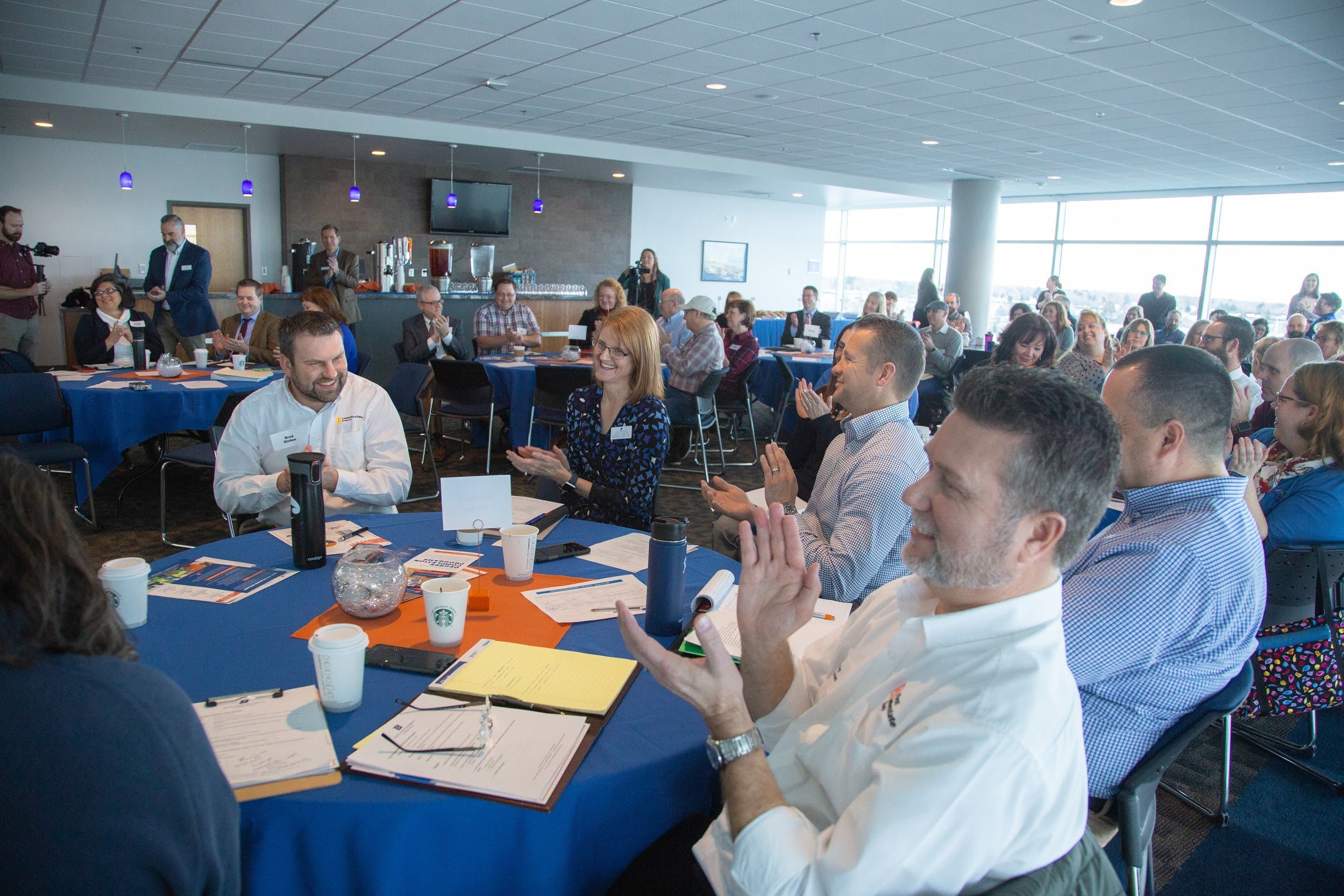
What emerged from those work groups were ideas for many different educational programs, from cultivating entrepreneurship in Mountain Home to addressing healthcare access in McCall to improving teacher training in Payette.
The event closed with a request for the core advisory teams to identify a broad community stakeholder group to work to further identify community needs and begin development of their unique educational programs. While the program outcomes will be owned by the communities, local leaders and Boise State will continue to work together closely to design relevant and innovative educational programs.
To contact and follow the progress of the president’s rural initiative, visit https://www.boisestate.edu/ruraleducation/.
– Pamela Craig, Extended Studies
